Power and wealth often go hand in hand—especially in global politics. In 2025, the overlap between political influence and financial might is more visible than ever, with some world leaders boasting fortunes that rival those of tech moguls and royalty. Our Top 50 Richest Presidents in the World (2025) list reveals just how vast the gap is between everyday citizens and the elite who lead them.
While some presidents accumulated their wealth long before stepping into office—thanks to successful business ventures, inheritance, or investments—others saw their fortunes grow significantly during or even after their terms. From oil tycoons to media moguls, the financial backstories of these leaders are as diverse as the countries they govern.
This ranking is based on credible, publicly available sources including Forbes, Bloomberg, government disclosures, and investigations by global watchdog groups. We’ve cross-referenced data to provide the most accurate insights into world leader wealth, top political net worths, and how presidential riches are amassed and maintained.
Curious to see who tops the list in 2025? Whether you’re a political junkie or just fascinated by wealth, dive into our definitive ranking of the richest presidents in the world and discover the fortunes behind the power.
Top 50 Richest Presidents in the World
1. Vladimir Putin (Russia) – $200 billion
Vladimir Putin, President of the Russian Federation, remains one of the world’s most scrutinized political figures and consistently ranks among the richest heads of state. As of 2025, his estimated net worth stands at $200 billion, though precise figures remain opaque due to Russia’s complex wealth structures and limited financial transparency. A significant portion of his fortune is believed to stem from stakes in energy giants like Gazprom and Rosneft, as well as indirect control over state-linked enterprises.
An active leader since 1999—either as president or prime minister—Putin has shaped modern Russia’s political and economic landscape. His tenure has drawn international criticism for alleged authoritarianism, suppression of dissent, and geopolitical conflicts, including the ongoing war in Ukraine. Despite sanctions and global pushback, his economic influence within Russia remains strong, positioning him as one of the wealthiest political leaders in 2025.
2. Alexander Lukashenko (Belarus) – $10 billion
Alexander Lukashenko, the long-standing President of Belarus, is among the richest heads of state in 2025, with an estimated net worth of $10 billion. In power since 1994, Lukashenko has consolidated his position through centralized authority and strong state control. His wealth is reportedly linked to opaque control over state-owned enterprises, particularly in sectors such as agriculture, energy, and manufacturing. Although not formally declared, international analysts suggest ties to offshore holdings and strategic state revenue streams have fueled his fortune.
Lukashenko remains an active political leader, often referred to as “Europe’s last dictator” due to his authoritarian governance style. His economic influence in Eastern Europe is significant, especially in trade relations with Russia and China. Notable controversies include alleged election fraud, human rights violations, and Western sanctions. Despite these issues, he maintains a powerful grip on Belarus’s political and economic landscape, ranking among the wealthiest political leaders in 2025.
3. Donald Trump (USA) – $5.5–$7 billion
Donald J. Trump, serving his second non-consecutive term as the 47th President of the United States since January 2025, ranks among the wealthiest political leaders in the world. With an estimated net worth between $5.5 and $7 billion, he remains a prominent figure on the list of richest heads of state.
Trump’s wealth originates from a vast real estate empire built through the Trump Organization, encompassing luxury hotels, golf resorts, and global licensing deals. His assets are concentrated in high-profile properties in New York, Florida, and international markets.
Currently active in office, Trump has been both influential and polarizing. His business dealings and asset disclosures have been subject to repeated scrutiny, with ongoing legal and ethical debates surrounding conflicts of interest and tax transparency. Nonetheless, his financial clout and political resurgence underscore his enduring global relevance in both economics and governance.
4. Kim Jong-un (North Korea) – $5 billion
Kim Jong-un, the Supreme Leader of North Korea since 2011, remains one of the most enigmatic and wealthiest political leaders globally. With an estimated net worth of $5 billion, his fortune is largely believed to be derived from state-controlled enterprises, illicit trade, and sovereign wealth siphoned through opaque financial networks. His family’s dynastic control over North Korea has spanned three generations, making him both a head of state and a symbolic monarch.
Despite international sanctions, Kim reportedly oversees luxury assets across Asia and Europe, including private jets, yachts, and real estate holdings. His leadership has faced widespread criticism for human rights abuses and aggressive nuclear policies, yet his economic grip on the country remains firm.
As one of the richest heads of state, Kim Jong-un’s wealth continues to draw scrutiny amid North Korea’s ongoing humanitarian crisis. He remains an active leader in 2025.
5. Kim Jong-il (North Korea, deceased) – $4 billion
Kim Jong-il, the former Supreme Leader of North Korea, remains one of the wealthiest political leaders in history. Though he passed away in 2011, his legacy continues through the ruling Kim dynasty. In 2025, his net worth is still estimated at $4 billion, largely derived from opaque state-controlled enterprises, including arms trade, illicit exports, and a vast network of offshore accounts.
His fortune was accumulated during decades of authoritarian rule marked by economic isolation and internal repression. While the North Korean population faced chronic shortages, Kim Jong-il maintained a lavish lifestyle, with luxury goods imported in defiance of international sanctions.
Despite being deceased, his wealth and influence persist through his son and current leader, Kim Jong-un. His role in shaping North Korea’s political economy makes him a notable entry among the richest heads of state and a significant figure in global discussions of dynastic wealth and authoritarian control.
6. Meles Zenawi (Ethiopia, deceased) – $3 billion
Meles Zenawi, the late Prime Minister of Ethiopia, remains a subject of financial and political analysis. Though he passed away in 2012, his legacy and reported fortune continue to attract scrutiny. His estimated net worth in 2025 stands at $3 billion, attributed primarily to natural resource concessions, infrastructure-linked enterprises, and opaque state-business networks formed during his administration.
Serving from 1995 to 2012, Zenawi played a pivotal role in transforming Ethiopia’s economic model toward state-led growth. His administration facilitated vast investments in energy and construction, some of which allegedly benefited entities linked to his political allies and family. While officially recognized for stabilizing a fractured post-Derg Ethiopia, his leadership was also marked by authoritarianism and limited press freedom.
Though now a retired legacy figure, Zenawi is often cited in discussions of richest heads of state, wealthiest political leaders in Africa, and posthumous net worth 2025 analyses.
7. Sebastián Piñera (Chile) – $2.8 billion
Sebastián Piñera, former President of Chile, ranks among the richest heads of state in the world. With an estimated net worth of $2.8 billion, Piñera built his fortune through investments in media, finance, and aviation. He was the principal shareholder of Chilean airline LAN and held stakes in television channel Chilevisión and financial firms before assuming public office.
Although retired from politics, Piñera remains a prominent figure in Latin American economic circles. His presidency was marked by both economic growth and intense public protests over inequality and social policies. Critics have scrutinized his wealth for potential conflicts of interest during his terms in office, though Piñera placed his assets in blind trusts while serving.
As one of the wealthiest political leaders globally, Piñera’s legacy blends entrepreneurial success with political controversy, positioning him high among the top 50 richest presidents in the world in 2025.
8. Saddam Hussein (Iraq, deceased) – $2 billion
Saddam Hussein, the former President of Iraq (1979–2003), remains one of the richest heads of state in modern history, with an estimated net worth of $2 billion. His wealth, largely accumulated through control of Iraq’s vast oil reserves, was bolstered by the nationalization of industries, alleged smuggling operations, and the appropriation of state funds. Though he was executed in 2006 following his capture by U.S. forces, Saddam’s financial legacy endures in global discussions about authoritarian rule and kleptocracy.
Hussein’s rule was marked by a totalitarian regime, military conflict—including the Iran-Iraq War and the Gulf War—and severe human rights abuses. His vast personal fortune became symbolic of the corrupt wealth amassed by political elites. Though no longer active, Saddam Hussein remains a notable figure on the list of the wealthiest political leaders due to the scale and secrecy of his empire.
9. Nawaz Sharif (Pakistan) – $1.6 billion
Nawaz Sharif, a three-time Prime Minister of Pakistan, remains one of the wealthiest political leaders in South Asia. As of 2025, his net worth is estimated at $1.6 billion, placing him among the top 50 richest presidents in the world. His wealth stems primarily from the Sharif family’s expansive business empire, which includes sugar mills, steel manufacturing (Ittefaq Group), and substantial real estate holdings in Pakistan and abroad.
Sharif’s tenure has been marked by economic reforms and infrastructure development, but also marred by high-profile corruption cases. He was disqualified from office in 2017 by Pakistan’s Supreme Court following the Panama Papers leak, which revealed undisclosed offshore assets. Despite legal challenges, his political influence endures through the Pakistan Muslim League (N), now led by family members. Nawaz Sharif’s financial legacy and continued political relevance underscore the intersection of wealth and power in South Asian governance.
10. Bashar al-Assad (Syria) – $1.5 billion
Bashar al-Assad, the President of Syria since 2000, is among the richest heads of state in the world. His estimated net worth of $1.5 billion stems primarily from a network of business interests, real estate holdings, and access to state-controlled resources. Much of this wealth is believed to be concentrated through extended family members and close allies with significant stakes in Syria’s economy, particularly in telecom, construction, and import-export sectors.
Assad remains an active political leader amid ongoing Western sanctions and regional tensions. Despite Syria’s prolonged civil conflict and humanitarian crisis, the Assad family’s financial influence has reportedly remained resilient. His presidency has drawn international scrutiny for alleged human rights violations and suppression of political dissent.
Bashar al-Assad continues to be listed among the wealthiest political leaders globally, with his fortune placing him in the upper ranks of the net worth 2025 estimates for world leaders.
11. Islam Karimov (Uzbekistan, deceased) – $1 billion
Islam Karimov, the former President of Uzbekistan, remains a notable figure among the richest heads of state, with an estimated net worth of approximately $1 billion. Serving as the country’s leader from 1990 until his death in 2016, Karimov presided over a tightly controlled authoritarian regime. His wealth is believed to have stemmed primarily from state-controlled enterprises, natural gas and oil revenues, and privatized industries, often concentrated within his extended family.
Although Karimov passed away nearly a decade ago, his legacy endures in Uzbekistan’s economic structure and the lingering presence of a family dynasty that allegedly benefited from his regime’s consolidation of assets. His tenure was marked by accusations of widespread human rights abuses, suppression of political dissent, and entrenched corruption.
As one of the wealthiest political leaders in Central Asia, Karimov’s name continues to surface in discussions on presidential net worth and post-Soviet elite accumulation of wealth.
12. Omar al-Bashir (Sudan) – $1 billion
Omar al-Bashir, the former President of Sudan, held office from 1989 until his ousting in 2019. As of 2025, his estimated net worth stands at $1 billion, placing him among the richest heads of state in recent history. Al-Bashir’s wealth is largely attributed to opaque control over state oil revenues, illicit financial networks, and alleged embezzlement during his three-decade rule.
Although retired from official politics following a military coup, al-Bashir remains a contentious figure in Sudanese affairs. His regime was marred by accusations of corruption, human rights abuses, and economic mismanagement. In 2009, he became the first sitting head of state indicted by the International Criminal Court for war crimes in Darfur.
Despite being deposed, investigations into hidden assets and offshore accounts continue to reveal the breadth of his fortune. Al-Bashir’s profile remains relevant in discussions of the wealthiest political leaders and net worth in 2025.
13. Behgjet Pacolli (Kosovo) – $900 million
Behgjet Pacolli, a former President of Kosovo and one of the wealthiest political leaders in Europe, boasts an estimated net worth of $900 million. His wealth stems primarily from his global construction and engineering conglomerate, Mabetex Group, which has executed high-profile projects across Eastern Europe, Russia, and Central Asia. Although Pacolli no longer holds office, his status as a retired head of state with ongoing business interests places him among the richest heads of state globally.
Pacolli’s tenure in public office was marked by his brief presidency in 2011 and a longer role as First Deputy Prime Minister and Minister of Foreign Affairs. He has faced scrutiny over business ties in post-Soviet regions, though no formal charges have emerged. Despite controversies, his economic influence in the Balkans remains significant. His profile is often cited in rankings of the world’s richest presidents and net worth 2025 lists.
14. Fidel Castro (Cuba, deceased) – $900 million
Fidel Castro, the former president and revolutionary leader of Cuba, remains one of the most controversial and wealthy political figures in modern history. At the time of his death in 2016, Castro’s estimated net worth is valued at around $900 million. As the de facto ruler of a one-party socialist state for nearly five decades, Castro exercised control over Cuba’s state-run economy, including lucrative ventures such as pharmaceutical companies and tourism conglomerates, reportedly managed by the Cuban military and government elite.
While officially denouncing personal wealth, investigative reports, including those from Forbes, linked Castro to a network of state enterprises, contributing to his place among the richest heads of state in history. Though no longer alive, Fidel Castro’s enduring financial and political influence positions him prominently among the wealthiest political leaders of the 20th and 21st centuries. His leadership remains a focal point of debate over governance, wealth distribution, and personal enrichment.
15. Ilham Aliyev (Azerbaijan) – $900 million
Ilham Aliyev, the President of Azerbaijan since 2003, ranks among the richest heads of state, with an estimated net worth of $900 million. His wealth is primarily attributed to Azerbaijan’s expansive oil and gas reserves, which are managed through the state-run SOCAR and various business interests linked to his extended family. As an active political leader and member of a longstanding family dynasty, Aliyev continues to exert significant control over the country’s economic and political institutions.
Aliyev’s presidency has been marked by allegations of corruption, wealth concealment, and suppression of dissent, drawing international scrutiny. Despite these controversies, his administration has maintained strategic partnerships with global energy markets, influencing regional economic dynamics in the Caspian Sea and beyond.
Ilham Aliyev’s net worth in 2025 positions him as one of the wealthiest political leaders in the world, frequently featured on lists tracking the richest presidents globally.
16. Rishi Sunak (UK Prime Minister) – $800 million
Rishi Sunak, the current Prime Minister of the United Kingdom, ranks among the richest heads of state globally. With an estimated net worth of $800 million, Sunak’s wealth stems largely from his marriage to Akshata Murty, the daughter of Indian tech billionaire Narayana Murthy, founder of Infosys. A former Goldman Sachs analyst and hedge fund manager, Sunak also holds personal investments in venture capital and real estate.
Sunak remains an active political leader, navigating the UK through economic turbulence and global geopolitical shifts. His financial status has attracted scrutiny, particularly around tax arrangements and his family’s non-domiciled tax status—issues that sparked national debates on wealth and political transparency.
Despite controversies, Sunak continues to exert considerable economic influence in global forums, especially on trade, digital regulation, and energy policy, securing his position as one of the wealthiest political leaders in the world (2025).
17. Horacio Cartes (Paraguay) – $500 million
Horacio Cartes, the former President of Paraguay (2013–2018), ranks among the richest heads of state with an estimated net worth of $500 million. A powerful figure in Paraguayan business and politics, Cartes amassed his fortune primarily through diversified holdings in the tobacco, banking, and beverage sectors. His Grupo Cartes conglomerate remains a dominant force in the country’s private economy.
Though Cartes officially left office in 2018, he continues to wield significant influence behind the scenes, especially within the Colorado Party. His status in 2025 is best described as retired but politically active, often seen as a kingmaker in national politics.
Cartes has faced notable controversies, including allegations of money laundering and tax evasion, which have sparked both domestic and international scrutiny. Despite this, his economic impact on Paraguay remains considerable, cementing his place among the wealthiest political leaders in Latin America.
18. Paul Kagame (Rwanda) – $500 million
Paul Kagame, the President of Rwanda since 2000, is listed among the richest heads of state in the world, with an estimated net worth of $500 million. Known for transforming Rwanda’s economy post-genocide, Kagame’s wealth is largely attributed to his family’s control over key businesses in telecommunications, mining, and construction through the investment holding company Crystal Ventures. While officially a public servant, his financial influence in Rwanda’s private sector raises frequent scrutiny.
Kagame remains an active political leader and continues to play a central role in East Africa’s regional diplomacy. His presidency has been praised for infrastructure development and technology advancement, but it is also marred by allegations of political repression and human rights concerns. As one of the wealthiest political leaders in Africa, Kagame’s financial and political footprint makes him a prominent figure in global discussions on governance and elite wealth in emerging economies.
19. Recep Tayyip Erdoğan (Turkey) – $500 million
Recep Tayyip Erdoğan, the incumbent President of Türkiye, ranks among the richest heads of state, with an estimated net worth of $500 million. Serving as Türkiye’s political leader since 2003—first as Prime Minister and later as President—Erdoğan has remained a dominant figure in national and regional politics. His wealth is reportedly tied to business interests, family-held companies, and alleged indirect control over real estate and construction sectors through close allies.
Erdoğan’s leadership has been marked by economic centralization, with critics highlighting state-aligned favoritism in major public contracts. Although Türkiye has experienced significant infrastructure growth under his tenure, concerns about transparency, inflation, and central bank independence have persisted.
Still an active head of state, Erdoğan exerts strong influence both domestically and in international affairs. His profile as a wealthiest political leader continues to generate scrutiny amid broader debates about political enrichment and governance ethics.
20. Uhuru Kenyatta (Kenya) – $500 million
Uhuru Kenyatta, who served as Kenya’s fourth president from 2013 to 2022, remains one of Africa’s wealthiest political leaders. His estimated net worth stands at approximately $500 million. A scion of the influential Kenyatta family, his wealth is largely derived from vast land holdings, the family-owned Brookside Dairy (a major milk processor in East Africa), and investments in media and banking sectors. As one of the richest heads of state during his time in office, Kenyatta maintained close ties with Kenya’s economic elite.
While his presidency was marked by large-scale infrastructure projects and a focus on digital governance, it was also shadowed by allegations of favoritism and concerns over public debt. Despite retiring from active politics, the Kenyatta family remains a powerful force in Kenyan business and political circles, maintaining their status among the wealthiest political leaders globally.
21. Cyril Ramaphosa (South Africa) – $450 million
Cyril Ramaphosa, the sitting President of South Africa, remains one of the wealthiest political leaders globally. His estimated net worth of $450 million stems primarily from successful ventures in mining, real estate, and private equity, including interests held through his Shanduka Group before assuming office. Ramaphosa, a former trade unionist turned businessman, played a critical role in South Africa’s post-apartheid economic transformation.
An active head of state, Ramaphosa is known for policies aimed at economic reform and anti-corruption, though his tenure has not been without controversy. Critics have questioned the pace of his reforms and raised concerns over transparency, especially during the COVID-19 procurement scandal.
As one of the richest heads of state, his financial portfolio continues to draw scrutiny amid efforts to address inequality. His substantial fortune, combined with political influence, places him high among the top 50 richest presidents in the world (2025).
22. Teodoro Nguema Obiang (Equatorial Guinea) – $200 million
Teodoro Nguema Obiang Mangue, Vice President of Equatorial Guinea and son of President Teodoro Obiang Nguema Mbasogo, ranks among the richest heads of state. His estimated net worth stands at $200 million, derived largely from oil revenues, luxury real estate, and state-linked business ventures. As part of a longstanding family dynasty, Obiang maintains a powerful position within the authoritarian regime that has ruled the oil-rich nation since 1979.
Though not a president himself, Obiang Mangue plays a central role in national governance and is widely viewed as his father’s successor. His wealth and lifestyle have drawn international scrutiny, including multiple corruption investigations in France, the U.S., and Switzerland. Authorities have seized millions in assets—luxury cars, mansions, and artworks—allegedly acquired with embezzled public funds. Despite controversies, Obiang Mangue remains a prominent and wealthy political leader, shaping Equatorial Guinea’s future economic trajectory.
23. Adolf Hitler (Germany, deceased) – $150 million
Adolf Hitler, the former Chancellor of Germany (1933–1945), remains one of the most controversial political figures in modern history. His net worth is estimated at $150 million, largely accumulated through royalties from his autobiography Mein Kampf, sales of propaganda art, and state-subsidized ventures during his regime. Though deceased since 1945, his inclusion in discussions of richest heads of state stems from his unique financial footprint in wartime Europe.
His status is historical rather than active, but Hitler’s economic model—marked by autarky, forced labor, and looting of occupied territories—had a significant and devastating influence on global finance and geopolitics. Notably, allegations persist that he leveraged Nazi state resources for personal and ideological enrichment.
While his legacy is widely condemned, the scale and structure of his wealth during his reign contribute to ongoing studies of wealthiest political leaders in history, particularly those who blurred personal gain with authoritarian rule.
24. Dave Portnoy (USA) – $150 million
Dave Portnoy, the outspoken founder of Barstool Sports, is among the wealthiest political figures to emerge from U.S. electoral circles, despite never holding office. With an estimated net worth of $150 million, Portnoy’s fortune stems primarily from his partial sale of Barstool Sports to Penn Entertainment and subsequent investments in digital media and cryptocurrency. Though his 2024 presidential bid was largely symbolic, it positioned him as a media-savvy disruptor in American politics.
Portnoy is a controversial figure due to his unfiltered commentary and frequent clashes with both mainstream media and regulators. Still, his influence on younger, internet-native voters and bettors is significant. While not a head of state, his wealth, political ambitions, and cultural relevance place him among the richest political figures 2025 and a noteworthy mention in any list of wealthiest political leaders. His post-campaign ventures continue to impact digital media and entertainment sectors globally.
25. Bill Clinton (USA) – $120 million
Bill Clinton, the 42nd President of the United States (1993–2001), remains one of the wealthiest political leaders in post-presidency history. As of 2025, Clinton’s net worth is estimated at $120 million. His wealth accumulation accelerated after leaving office, stemming from high-profile speaking engagements, best-selling memoirs, and consulting work. Alongside his wife, Hillary Clinton, the couple leveraged their global stature to build a vast post-political enterprise.
Now retired from public office, Clinton is still an influential figure in U.S. and global politics through the Clinton Foundation, which has drawn both praise and scrutiny over foreign donations and transparency. Although not currently active in political leadership, Clinton is frequently cited in analyses of the richest heads of state and is a recurring name in searches for “net worth 2025” among former world leaders. His legacy intertwines with the rise of political dynasties and the evolving economics of post-presidential influence.
26. Cristina Kirchner (Argentina) – $115 million
Cristina Fernández de Kirchner, former President and current Vice President of Argentina, remains one of the wealthiest political leaders in Latin America. As of 2025, her estimated net worth stands at $115 million. Her wealth originates primarily from real estate investments, inherited assets, and longstanding ties to political power within Argentina’s Peronist movement.
A key figure in Argentine politics for over two decades, Kirchner served as president from 2007 to 2015 and has remained politically influential since. While officially retired from the presidency, she continues to wield significant influence behind the scenes.
Kirchner has faced multiple allegations of corruption, including money laundering and illicit enrichment, though she denies all charges and claims political persecution. Her economic policies—marked by state intervention and populist reforms—have left a lasting impact on Argentina’s fiscal landscape.
Her profile consistently ranks high in searches for the “net worth 2025” of the “richest head of state” and “wealthiest political leader.”
27. Idi Amin (Uganda, deceased) – $100 million
Idi Amin, the former President of Uganda (1971–1979), remains one of the most controversial figures in African political history. Though ousted decades ago, his legacy continues to provoke global interest, especially regarding the financial empire he amassed during his rule. Amin’s estimated net worth stands at $100 million, primarily derived from expropriated businesses, looted state assets, and international arms dealings.
Amin governed as a military dictator and his wealth accumulation often stemmed from the forced expulsion of Uganda’s Asian community, seizing their assets and businesses. Despite his death in 2003, family holdings and offshore accounts reportedly continue to contribute to his lingering financial footprint.
As a richest head of state from Uganda’s past, Amin’s influence over the nation’s economy was both extensive and destructive, marked by mismanagement and economic decline. His profile remains notable among the wealthiest political leaders in modern history due to the scale and means of his wealth.
28. Jean-Bertrand Aristide (Haiti) – $100 million
Jean-Bertrand Aristide, the former President of Haiti, ranks among the richest heads of state in the world in 2025. With an estimated net worth of $100 million, Aristide’s wealth stems primarily from undisclosed business interests, international donations, and alleged misuse of public funds during his time in office. A former Catholic priest turned political leader, Aristide served two non-consecutive presidential terms (1991 and 1994–1996, then 2001–2004) before being ousted amid accusations of corruption and human rights abuses.
Though officially retired from politics, Aristide remains a significant figure in Haitian political circles and continues to influence the country’s affairs through his party, Fanmi Lavalas. His controversial leadership, coupled with persistent questions surrounding financial mismanagement, has attracted scrutiny from both domestic and international observers. Aristide’s financial legacy and ongoing prominence in Haiti’s political landscape secure his place among the wealthiest political leaders of 2025.
29. John F. Kennedy (USA, deceased) – $100 million
John F. Kennedy, the 35th President of the United States, remains one of the wealthiest political leaders in modern history. Although assassinated in 1963, his financial legacy endures through substantial family wealth. His estimated net worth in 2025 stands at $100 million, adjusted for inflation and market value. The Kennedy family fortune stemmed from patriarch Joseph P. Kennedy Sr., who amassed wealth through stock market investments, real estate, and liquor distribution. As a member of a prominent political dynasty, JFK’s assets were closely tied to inherited wealth and trust funds.
Kennedy’s tenure, while short, had lasting influence on American politics and global diplomacy during the Cold War. Despite his considerable wealth, JFK projected a populist image, though critics have scrutinized the family’s business dealings and offshore accounts. As a symbol of elite American leadership, he frequently features in lists of the richest head of state and wealthiest political leader rankings worldwide.
30. Michael Misick (Turks and Caicos) – $100 million
Michael Misick, the former Premier of the Turks and Caicos Islands, is among the wealthiest political leaders in the Caribbean. As of 2025, his net worth is estimated at $100 million. Misick’s wealth primarily stems from real estate ventures and alleged illicit enrichment during his tenure. He served as Premier from 2003 to 2009, when he resigned amid growing corruption allegations and a UK-led investigation into misappropriation of public funds.
Despite his political downfall, Misick remains a notable figure in regional politics, with his financial dealings continuing to attract scrutiny. His case is often cited in discussions about governance reform in overseas territories. Currently retired from active politics, he is sometimes referenced in debates on anti-corruption efforts.
Michael Misick’s inclusion in the ‘Top 50 Richest Presidents in the World (2025)’ underscores the blurred lines between political power and private fortune, especially in smaller jurisdictions.
31. Ramzan Kadyrov (Chechnya) – $100 million
Ramzan Kadyrov, the long-serving President of the Chechen Republic, remains one of the wealthiest political leaders in the Russian Federation. As of 2025, his net worth is estimated at $100 million, with wealth reportedly stemming from state contracts, business ties, and regional control over economic flows within Chechnya. While technically a regional leader, Kadyrov’s de facto autonomy and influence place him among the richest heads of state in terms of power and personal wealth.
Officially appointed by the Kremlin, Kadyrov has maintained a tight grip on Chechnya since 2007, consolidating power through loyalty to President Vladimir Putin. He is active in office and known for cultivating a strongman image.
His tenure has been marked by controversies, including alleged human rights abuses and suppression of dissent. Nonetheless, Kadyrov has played a pivotal role in stabilizing the region post-conflict, influencing Russian domestic and security policy.
32. Raúl Castro (Cuba) – $100 million
Raúl Castro, the former President of Cuba and brother of revolutionary leader Fidel Castro, holds an estimated net worth of $100 million. His wealth, although modest compared to other global figures, is reportedly derived from state-controlled enterprises and his influential role in the Cuban Communist Party. While officially retired, Castro remains a key figure in Cuba’s political landscape, often cited in discussions of dynastic power transitions.
Castro’s long-standing leadership has drawn criticism over Cuba’s lack of economic transparency, with international observers speculating on the elite’s access to privileged resources. Despite the nation’s economic hardships, his family’s entrenched political control has been tied to sectors such as tourism and state-run commerce.
As one of the richest heads of state from Latin America, Raúl Castro’s net worth in 2025 underscores the often opaque relationship between political power and wealth accumulation among the wealthiest political leaders worldwide.
33. Viktor Yanukovych (Ukraine) – $100 million
Viktor Yanukovych, the former President of Ukraine (2010–2014), is estimated to have a net worth of $100 million. Once a prominent figure in Eastern European politics, Yanukovych amassed his fortune primarily through real estate holdings, opaque business ventures, and alleged misuse of state resources during his time in office. His presidency ended abruptly during the 2014 Ukrainian revolution, after which he fled to Russia.
Currently retired and living in exile, Yanukovych remains a polarizing figure. His time in power was marked by corruption allegations and close ties to Russian leadership, contributing to significant political instability in Ukraine. Despite his ouster, his wealth and lingering influence keep him on the radar as one of the wealthiest political leaders in post-Soviet history.
His inclusion in the Top 50 Richest Presidents in the World (2025) list highlights the intersection of political power and personal enrichment, central to discussions of the richest head of state net worth 2025.
34. Barack Obama (USA) – $70 million
Barack Obama, the 44th President of the United States (2009–2017), remains one of the most influential political figures globally. As of 2025, his estimated net worth stands at $70 million, placing him among the richest heads of state and former leaders. Much of his wealth stems from lucrative book deals—including A Promised Land—and high-profile speaking engagements worldwide. In addition, he co-founded Higher Ground Productions, a media company with a multi-year deal with Netflix, further boosting his financial portfolio.
Now retired, Obama continues to shape global discourse through advocacy, philanthropy, and leadership development initiatives. While largely free of financial controversies, some critics have debated the ethics of post-office earnings by former presidents. Regardless, Obama remains a wealthiest political leader whose fortune reflects the modern monetization of political legacy through media and publishing, rather than traditional industries like oil or real estate.
35. Tony Blair (UK) – $60 million
Tony Blair, the former Prime Minister of the United Kingdom (1997–2007), remains one of the wealthiest political leaders globally in 2025, with an estimated net worth of $60 million. After leaving office, Blair founded multiple advisory firms, including Tony Blair Associates, leveraging his global network for consulting work with governments and multinational corporations. He also secured lucrative book deals and frequently commands high fees for public speaking engagements.
Though no longer in office, Blair’s financial trajectory has sparked scrutiny over potential conflicts of interest during his post-premiership ventures. Critics have pointed to deals in the Middle East and advisory roles with sovereign wealth funds as controversial. Nonetheless, his continued influence on global policy and economics keeps him relevant among the richest heads of state, albeit retired. His profile is often cited in discussions around former leaders transforming political capital into personal wealth.
36. Charles Taylor (Liberia) – $56 million
Charles Taylor, the former President of Liberia, remains a notable figure in discussions surrounding the richest heads of state due to his controversial accumulation of wealth. As of 2025, Taylor’s net worth is estimated at $56 million. His financial gains reportedly stem from illicit control over natural resources during Liberia’s civil conflict, particularly timber and diamonds, often referred to as “blood diamonds.”
Taylor served as president from 1997 until his resignation in 2003, following mounting international pressure and civil unrest. Though no longer in office, his legacy endures, partly due to his 2012 conviction by the Special Court for Sierra Leone for aiding war crimes—a landmark case in international law.
Despite incarceration, Taylor remains a symbol of how political power can be leveraged for personal gain. His profile underscores the complex intersection of governance, conflict, and wealth, positioning him among the wealthiest political leaders with enduring global infamy.
37. Daniel Ortega (Nicaragua) – $50 million
Daniel Ortega, the long-serving President of Nicaragua, remains one of the richest heads of state in Latin America. As of 2025, his net worth is estimated at $50 million. Ortega’s wealth primarily stems from his control over state institutions, family-linked businesses, and alleged access to government contracts. Originally a Marxist revolutionary and leader of the Sandinista National Liberation Front (FSLN), Ortega has consolidated power through increasingly authoritarian means.
Ortega’s family has been criticized for dominating key sectors of the Nicaraguan economy, fueling perceptions of a political dynasty. His current status is active, holding office through a series of controversial elections. Despite international condemnation, Ortega has maintained strong economic ties with allies like Russia and China.
Notable controversies include electoral fraud allegations and suppression of opposition. Nonetheless, Ortega continues to influence regional politics and remains a prominent figure among the wealthiest political leaders globally.
38. David Cameron (UK) – $50 million
David Cameron, former Prime Minister of the United Kingdom (2010–2016), remains a prominent figure among the wealthiest political leaders. With an estimated net worth of $50 million, Cameron’s financial portfolio has grown significantly post-office through advisory roles, private equity connections, and high-paying speaking engagements. A key contributor to his wealth has been his position with U.S.-China investment firm First Data and his lucrative memoirs.
Though retired from frontline politics, Cameron’s ties to global finance and business circles keep him influential in international affairs. His name surfaced in the Greensill Capital lobbying controversy, which raised concerns over political access and financial ethics, though no legal wrongdoing was confirmed.
As one of the richest heads of state in the post-office category, Cameron exemplifies the financial trajectory of Western leaders leveraging public service into private sector opportunities. His net worth in 2025 places him among the top 50 richest presidents globally.
39. George W. Bush (USA) – $50 million
George W. Bush, the 43rd President of the United States (2001–2009), remains a prominent figure among the richest heads of state. As of 2025, his net worth is estimated at $50 million. His wealth stems from a mix of oil industry investments, book deals, paid speaking engagements, and family inheritance. The Bush family is part of a longstanding American political dynasty, with significant holdings in Texas real estate and energy ventures.
Now retired from political life, Bush has focused on philanthropy and his presidential library. While his presidency was marked by the controversial Iraq War and the 2008 financial crisis, he continues to wield economic influence through board memberships and public commentary. His inclusion on the list of the wealthiest political leaders in 2025 reflects the enduring financial clout of U.S. presidents post-office, particularly those with deep family ties to business and politics.
40. Idriss Déby (Chad, deceased) – $50 million
Idriss Déby, the longtime leader of Chad, remains one of the richest heads of state in Africa. Although Déby passed away in 2021, his political and economic legacy continues through his family dynasty, notably his son Mahamat Idriss Déby Itno, who now leads the Transitional Military Council. As of 2025, Déby’s net worth is still estimated at $50 million, with wealth sources including oil revenues, military contracts, and family-owned businesses operating within the Sahel region.
Déby ruled Chad from 1990 until his death, wielding strong military and political control during his tenure. His administration was often accused of corruption, electoral manipulation, and resource mismanagement, particularly about Chad’s oil sector. Despite controversy, he maintained close ties with Western powers due to Chad’s strategic role in regional counterterrorism efforts. His financial legacy secures him a place among the wealthiest political leaders in recent African history.
41. Mario Monti (Italy) – $50 million
Mario Monti, former Prime Minister of Italy, holds an estimated net worth of $50 million as of 2025. Known for his technocratic leadership during Italy’s debt crisis in the early 2010s, Monti’s wealth stems primarily from his academic career, consultancy roles, and board memberships in multinational corporations and European institutions. Though no longer active in politics, Monti remains a respected figure in European economic circles.
As a former EU Commissioner and long-time professor at Bocconi University, Monti’s financial influence lies in policy advisory and corporate governance rather than personal business ventures. While never involved in significant controversy, his austerity-driven reforms sparked debate during his tenure. Monti continues to shape European fiscal dialogue through think tanks and economic forums.
Featured among the richest heads of state and wealthiest political leaders, Monti exemplifies how academic and institutional roles can translate into long-term financial influence even after public service.
42. Mwai Kibaki (Kenya, deceased) – $50 million
Mwai Kibaki served as the third President of Kenya from 2002 to 2013. As of 2025, his net worth is estimated at $50 million, placing him among the richest heads of state from Africa in modern history. Kibaki’s wealth primarily stems from real estate investments and private business ventures, particularly in Nairobi and central Kenya, accumulated during and after his decades-long political career.
Although retired from active politics, Kibaki remained a significant figure in Kenya’s post-independence economic evolution until his death in 2022. His administration is credited with launching major infrastructure projects and liberalizing parts of the economy, though it also faced criticism over corruption and election-related violence in 2007.
Kibaki’s inclusion among the wealthiest political leaders in 2025 reflects both his economic influence during his presidency and strategic post-office investments. His legacy continues to shape discussions on leadership and wealth in African politics.
43. George H.W. Bush (USA, deceased) – $25 million
George Herbert Walker Bush, the 41st President of the United States (1989–1993), had an estimated net worth of $25 million. Though he passed away in 2018, his financial legacy continues to position him among the wealthiest political leaders in modern U.S. history. Bush’s wealth came from a combination of oil investments, public speaking engagements, and family trusts, including stakes in the Zapata Corporation, an oil exploration company he co-founded in the 1950s.
As a retired statesman and part of a prominent American political dynasty, Bush’s financial standing reflects both personal ventures and generational inheritance. While he did not face major financial controversies, critics occasionally scrutinized his business ties during and after his presidency. His economic influence extended through his leadership during the end of the Cold War and the Gulf War.
Bush remains a relevant figure in discussions of the richest head of state and presidential net worth 2025 rankings.
44. Volodymyr Zelenskyy (Ukraine) – $25 million
Volodymyr Zelenskyy, the sitting President of Ukraine since 2019, is among the wealthiest political leaders in Eastern Europe. His net worth is estimated at $25 million, primarily derived from his earlier career in entertainment. Before entering politics, Zelenskyy was a successful comedian, actor, and media producer, co-founding the production company Kvartal 95.
Though not among the richest heads of state globally, Zelenskyy’s financial profile has drawn attention due to the intersection of personal assets and national leadership during wartime. He continues to serve as an active head of state, overseeing Ukraine’s defense and international diplomacy amid the ongoing conflict with Russia.
There have been periodic claims and scrutiny regarding his offshore holdings and business interests, particularly revealed in the Pandora Papers, though no legal charges have materialized. Zelenskyy remains a notable economic influencer in Ukraine through anti-corruption reforms and foreign investment initiatives.
45. Yingluck Shinawatra (Thailand) – $25 million
Yingluck Shinawatra, the former Prime Minister of Thailand, is among the wealthiest political leaders in Southeast Asia. As of 2025, her estimated net worth stands at $25 million. Her wealth primarily stems from family business holdings in telecommunications and real estate, inherited from the influential Shinawatra family empire. Although Yingluck was ousted in 2014 and later went into self-imposed exile, she remains a prominent figure in Thai political circles.
Currently retired from formal politics, Yingluck is part of a broader political dynasty, with her brother Thaksin Shinawatra having also served as Prime Minister. Her administration faced significant controversy, notably surrounding a costly rice subsidy scheme that led to her impeachment. Despite this, she maintains a loyal support base and continues to influence Thai politics from abroad.
Her profile fits among the richest heads of state and is often cited in lists of the top 50 wealthiest political leaders by net worth in 2025.
46. Ariel Sharon (Israel, deceased) – $20 million
Ariel Sharon, former Prime Minister of Israel, remains one of the wealthiest political leaders in the nation’s modern history. His estimated net worth stands at $20 million, primarily accumulated through land holdings, agricultural assets, and a military pension. Sharon served as Israel’s 11th Prime Minister from 2001 until 2006, when a stroke ended his active political role. Though retired and deceased since 2014, his legacy continues through his family’s farming business and real estate ventures.
Sharon’s wealth came largely from his extensive ranch in the Negev Desert, investments in Israeli agriculture, and land inherited from his parents. A controversial figure, Sharon was both praised for his military leadership and criticized for his role in the 1982 Lebanon War, including the Sabra and Shatila massacre oversight. Despite the controversies, he remains a notable entry among the richest heads of state and wealthiest political leaders of the early 21st century.
47. Gerhard Schröder (Germany) – $20 million
Gerhard Schröder, the former Chancellor of Germany (1998–2005), ranks among the richest heads of state in retirement, with an estimated net worth in 2025 of $20 million. His wealth primarily stems from lucrative board positions and consulting roles in the energy sector, including his controversial ties to Russian energy giants such as Gazprom and Rosneft.
Though no longer in office, Schröder remains a wealthiest political leader due to his continued involvement in international business and advisory circles. His post-political career has attracted criticism in both German and international media, particularly amid tensions between Europe and Russia, raising questions about conflict of interest and ethical boundaries.
Now retired from public office, Schröder’s financial trajectory underscores the intersection between high-level politics and global energy networks. Despite ongoing controversies, his legacy includes shaping Germany’s economic reforms in the early 2000s, though overshadowed by his business alliances in recent years.
48. Jacob Zuma (South Africa) – $20 million
Jacob Gedleyihlekisa Zuma, the former President of South Africa (2009–2018), remains a prominent figure in African political and financial circles. With an estimated net worth of $20 million, Zuma ranks among the richest heads of state on the continent. His wealth has been accumulated through a combination of political influence, alleged business dealings, and support from wealthy associates.
Zuma is currently retired but remains influential in South Africa’s political landscape, particularly within the ANC. His tenure was marred by numerous controversies, including corruption allegations related to the multibillion-dollar arms deal and his close ties to the Gupta family, which contributed to widespread state capture investigations.
Despite his legal troubles, Zuma’s financial standing keeps him listed among the wealthiest political leaders. His story is frequently cited in discussions about leadership accountability and the blurred lines between political power and personal enrichment.
49. Juan Carlos Varela (Panama) – $20 million
Juan Carlos Varela, the former President of Panama (2014–2019), maintains a modest position among the wealthiest political leaders globally. As of 2025, his estimated net worth stands at $20 million, placing him in the mid-tier of the Top 50 Richest Presidents in the World. Varela’s wealth primarily stems from his family-owned liquor company, Varela Hermanos S.A., a major regional producer of rum and other spirits.
A businessman before entering politics, Varela leveraged his corporate background during his tenure to attract foreign investment, though his administration was later scrutinized for alleged corruption ties during the Odebrecht scandal. Despite this, he remains an influential figure in Panamanian business circles and a member of Panama’s elite class.
Now retired from public office, Juan Carlos Varela exemplifies how private enterprise can shape a richest head of state profile, even outside the traditional strongholds of oil or royalty.
50. Néstor Kirchner (Argentina, deceased) – $20 million
Néstor Kirchner, who served as President of Argentina from 2003 to 2007, remains a notable figure among the richest heads of state in Latin American history. As of 2025, his net worth is estimated at $20 million, derived primarily from real estate holdings and strategic investments accumulated during and after his presidency. Though Kirchner passed away in 2010, his political legacy endures through his wife, Cristina Fernández de Kirchner, and their family’s continued influence in Argentine politics, placing him within a political family dynasty.
Kirchner’s economic influence during his tenure was marked by Argentina’s recovery from its 2001 financial crisis. His policies on debt restructuring and economic nationalism reshaped the country’s fiscal landscape. However, his presidency also faced scrutiny over allegations of corruption and opaque business dealings. Despite the controversies, Kirchner is frequently cited in discussions of wealthiest political leaders and presidential net worth in 2025 rankings.
FAQs
Who is the richest president in the world in 2025?
As of 2025, Vladimir Putin is often cited as the richest president, with an estimated net worth of $70 billion
How do presidents accumulate their wealth?
Presidents typically build wealth through pre-office business ventures, real estate, investments, inherited assets, and, in some cases, controversial or undisclosed sources.
Are current or former U.S. presidents among the richest?
Yes, former U.S. presidents like Donald Trump and George Washington (adjusted for inflation) are among the wealthiest due to extensive real estate holdings and land ownership.
Does a president’s salary make them rich?
No, the official salary of most presidents is modest compared to their overall net worth, which usually comes from private business interests or assets held before or after office.
Are monarchs included in richest president rankings?
No, monarchs are excluded. This list focuses on elected or appointed heads of state with the title of “president.”
Which African president is the wealthiest?
Teodoro Obiang Nguema Mbasogo of Equatorial Guinea is considered one of the richest African presidents, with wealth allegedly exceeding $600 million.
Mohit is a media researcher and co-founder of TheNetWorths.com, with over 10 years of experience analyzing celebrity income, brand deals, and the creator economy. He delivers data-backed insights on how today’s stars grow their wealth and influence—trusted by readers and digital entrepreneurs.




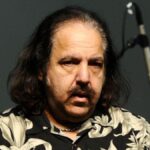
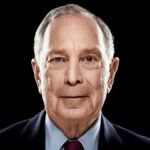

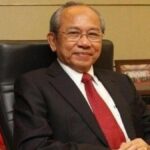







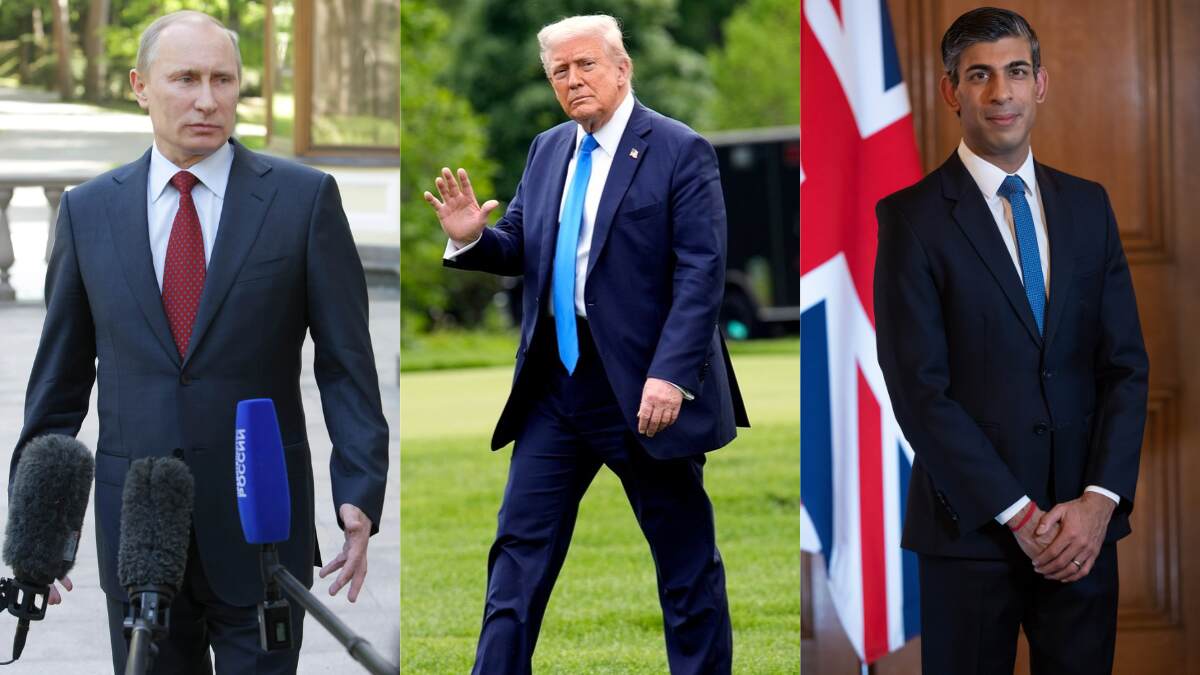


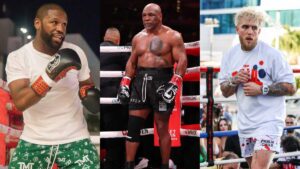
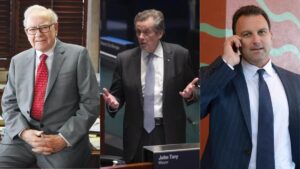
3 thoughts on “Top 50 Richest Presidents in the World [2025]”